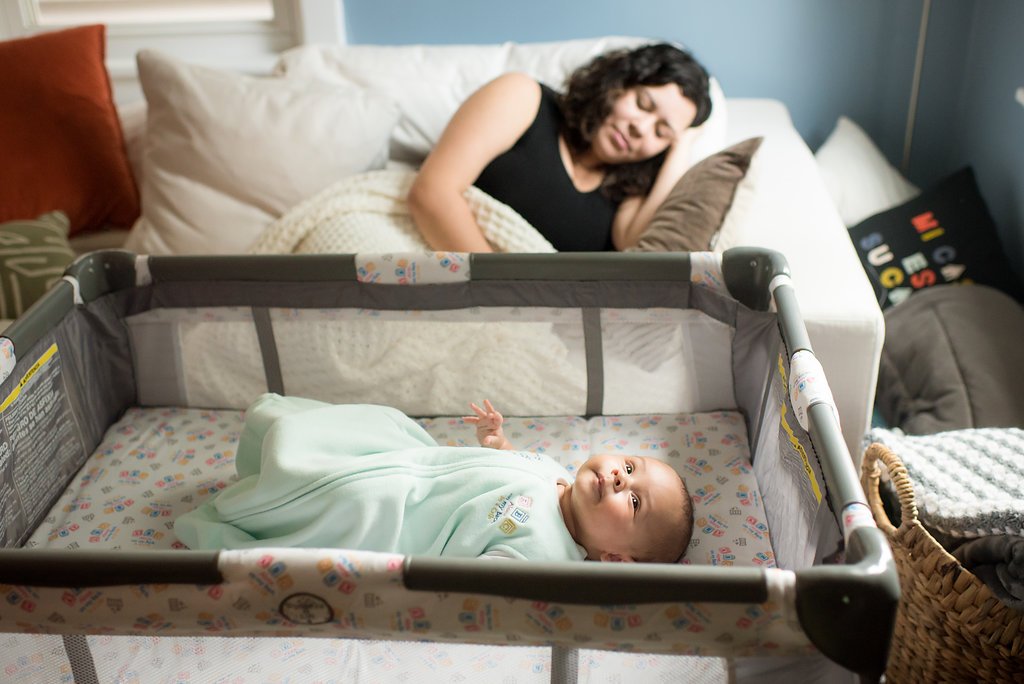The Importance of Independent Sleep
As a pediatric sleep consultant, my job is to teach families the importance of independent sleep for their child and how to achieve it. Let's dig into why independent sleep is so important.
Why is sleep so important?
Sleep is extremely important for all ages. For adults it's especially important for our overall health (both mental and physical) and our cognitive function. Good sleep helps our body function at its best and keeps our immune system strong.
For babies and children, sleep is important for their health, growth and development. Poor sleep in infancy has been linked to problems with cognitive function, social skills, obesity and quality of life later in childhood. Poor sleep can cause babies and toddlers to be cranky and overtired. It affects their ability to concentrate and be engaged in play. Good sleep helps with the baby's physical growth as growth spurts often happen during sleep. Good sleep helps with brain development and learning. Sleep allows infants and toddlers to strengthen their memories and things they have learned while awake, prepares them for the processing and exploration of their environment and allows them to process sensory stimuli and learn about contingencies in their environment. Good sleep is also important for developing an immune system and helps restore energy. Increased blood supply to muscles as well as tissue growth and repair happens during deep sleep. For all these reasons it's important to help your infant learn healthy sleep habits early on.
What happens if an infant doesn’t know how to fall asleep on their own?
Infants who do not know how to put themselves to sleep may take longer to fall asleep and wake frequently because they do not how to transition through sleep cycles on their own. This effects the quality of the sleep they get.
You teach your child all sorts of skills for independence throughout their life and learning to fall asleep independently shouldn't be any different. This means, being able to fall asleep on their own at naptime, bedtime and during the night as they wake while transitioning through sleep cycles. Adults wake up after sleep cycles throughout the night, but most of the time we do not remember them as we can fall back to sleep on our own quite quickly, so those wakings we have are only a few seconds. If a baby falls asleep by rocking, swaying, feeding or using sleep props like bottles or pacifiers, they will expect that same prop when they wake in the middle of the night. Babies have many sleep cycles so this will result in frequent waking during the night. When your baby knows how to fall asleep on their own, they won't need your help to get to sleep. When a baby is put to sleep by you (via feeding, rocking, etc) or a prop (such as a bottle), they will require that same method (or prop) to go back to sleep after one or two sleep cycles. When that happens your baby will cry for you to help them back to sleep. The best thing you can do is teach them to fall asleep on their own so that when they wake in the middle of the night, they can put themselves back to sleep just as you do throughout the night. This will eliminate the frequent night time waking.
It is also best to allow your baby to fall asleep on their own in their bassinet or crib. Having your baby fall asleep in your arms and they later wake up in their crib is alarming and disorienting and they immediately start to cry. They will wonder where they are and where you went. They will have a hard time settling back to sleep. Many parents will rock or feed their baby into a deep sleep and then gently place them in their crib. They will then have to do it all over again when their baby wakes up. This is affects their quality of sleep as well as yours. This is why it is very important to allow your baby to fall asleep on their own in their crib or bassinet.
As discussed earlier, sleep is just as important for adults. You too need to be well rested to be the best healthy version of yourself for your baby. If your mental and physical health are suffering from lack of sleep, it will be harder for you to care for your child. Teaching your baby to sleep independently, benefits the entire family.
The hard part of sleep training, is teaching your baby to fall asleep on their own and it is something you need to commit to. If you give in, it shows your baby that if they cry and fuss enough, you will help them go to sleep. This just continues the cycle of waking and crying for you. Don't give in and don't give up!
It is also very important that all care givers who may put your child down to sleep for bedtime or naps, follows the same steps of the sleep training method you choose, so that regardless of who is putting your child to bed, they have consistency in the routine and steps. This will help them learn faster.
If you are wanting your whole family's sleep to improve and aren't sure where to begin in teaching this valuable life skill to your baby, I am here to help. Book a FREE 15 minute discovery call today so we can chat about how I can help you on a journey to better sleep for all!


